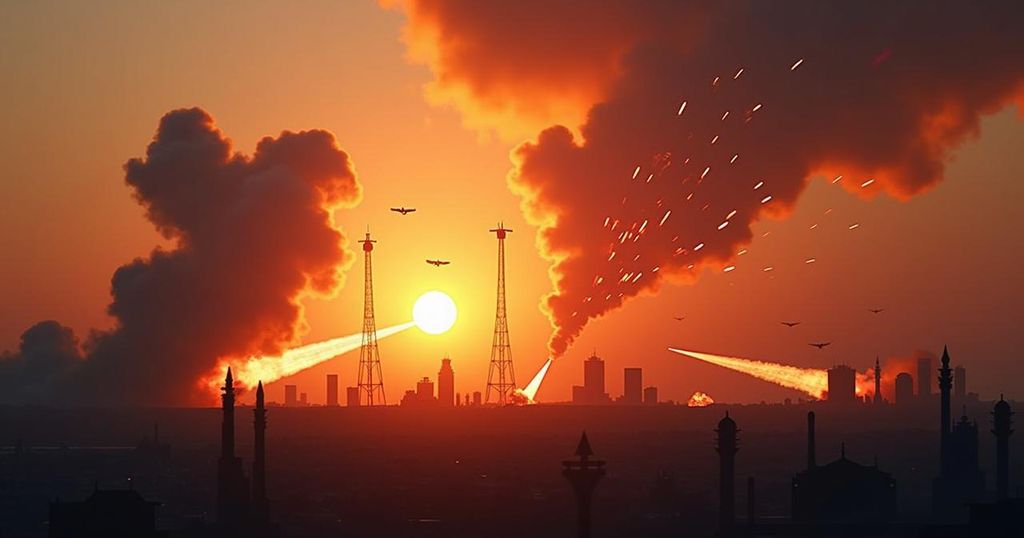Escalating Conflict in the Middle East: Israel Strikes and Houthi Missile Attacks on Tel Aviv
Israeli air strikes have significantly increased in Lebanon, Gaza, and Syria, killing numerous civilians. The Houthis fired a missile at Tel Aviv, further escalating tensions. Despite international calls for a ceasefire, the situation remains volatile with ongoing military actions on both sides.
The ongoing conflict in the Middle East has escalated dramatically, as Israeli air strikes targeted multiple locations in Lebanon, Gaza, and Syria in the early hours. In southern Lebanon, an Israeli air assault claimed the lives of nine family members, including four children. Additionally, comprehensive air strikes devastated various towns, resulting in significant civilian casualties, with 92 people killed and 153 more injured within the last 24 hours. The World Health Organization reported the shutdown of at least 37 health facilities in Lebanon due to the conflict, exacerbating an already dire humanitarian situation, as over 90,000 people have been newly displaced, with more than 700 having died since the beginning of hostilities earlier in the week. In Gaza, Israeli bombings targeted Jabalia refugee camp, causing casualties among families, while strikes in Syria resulted in the deaths of five soldiers from an Israeli attack against a military site. Amid these hostilities, the Houthis from Yemen launched a long-range missile towards Tel Aviv, which was intercepted by Israel’s defense mechanisms. The missile attacks were a continuation of threats from the Houthis, following a previous drone strike in July that resulted in casualties in Tel Aviv. On another front, Hezbollah reported firing rockets into northern Israel, as tensions remained high across the region, leading to increased military activity from various factions. Israeli Prime Minister Benjamin Netanyahu indicated a potential openness to ceasefire discussions, amidst international calls, including a recent joint statement from US President Joe Biden and French President Emmanuel Macron advocating for a 21-day truce to facilitate broader negotiations.
The recent escalation of violence in the Middle East highlights the interconnectedness of various conflicts in the region. Israel’s prolonged military operations against militants have drawn responses not only from neighboring actors but also from factions such as the Houthis in Yemen, who have demonstrated an increasing willingness to target Israeli territory. This cycle of retaliatory strikes contributes to a deteriorating humanitarian situation in multiple nations, particularly in Lebanon and Gaza, where civilian casualties and the destruction of critical infrastructure have prompted urgent calls for a ceasefire from the international community. The intricate dynamics between state and non-state actors in the region complicate the prospects for peace, underscoring the need for sustained dialogue and interventions.
The ongoing air strikes by Israel, coupled with retaliatory missile fire from Yemen’s Houthis, have contributed to a profound humanitarian crisis across Lebanon, Gaza, and Syria. The international community’s calls for a ceasefire reflect a growing concern for civilian lives, as death tolls continue to mount and health facilities are rendered inoperative. With multiple factions engaged in conflict and the potential for broader escalation, sustained diplomatic efforts are essential to secure a path towards peace and stability in the region.
Original Source: www.middleeasteye.net




Post Comment